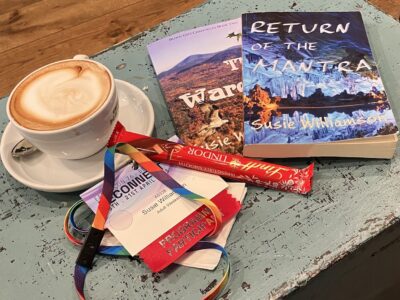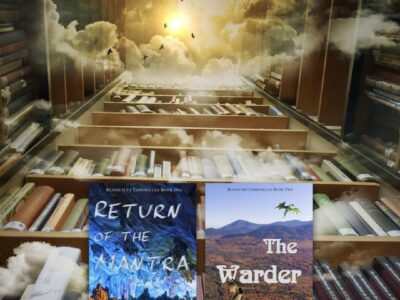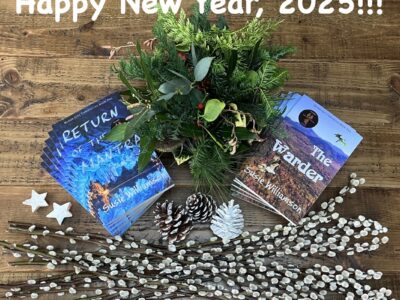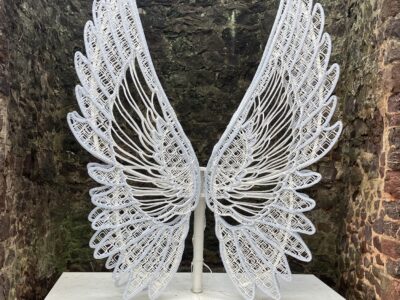
It’s Return of the Mantra’s two-year anniversary. Here’s a snippet of where it all began:
Chapter One
It was early, the skies filled with the golden colours of dawn, but already the river was bustling with life. Today was a special day.
I led the mule along the rise of the riverbank, wading through long reeds. It was hot, it was always hot on my homeland of Shendi: the drought had lasted all my fifteen years, and decades before. Despite the heat I pulled the hood down low over my face, as I passed women washing clothes, men fishing, and children swimming. Listening to their chat and laughter amidst a backdrop of squawking gulls, seeing the odd scowl cast in my direction, I felt like an unwelcomed stranger in my hometown. The hood was reassuring since it hid my face.
***
Well, I did say it was a snippet!
And so begins Suni’s journey. Born into an oppressive world, she struggles to find her place, living a secretive life, risking persecution as she follows the old ways. This is a world that has suffered drought for decades, a world in need of its people to reconnect with a forgotten heritage. Can Suni lead them to a new and brighter age? She embarks on a journey of self-discovery, a search for justice, and ultimately a fight to save her homeland.
I still think of the story as an elaborate raindance, complete with all the complexities that life can throw. I was delighted to recently read the following 5* review on Amazon (click here), highlighting the cli-fi sub-genre, and themes that were character defining.
Reviewed in the United Kingdom on 22 April 2020
I was once asked whether I think current issues can be dealt with in the fantasy genre, to which I answered with a resounding, YES. I love the fantasy genre for many reasons, including the scope it gives to discuss social injustices, marginalised groups, and a whole plethora of issues that affect us. It got me thinking back to before the book was published, during the late editing stages. There was a comment in the margin of the chapter where the main character embarks on her first romantic encounter, which just so happens to be with another woman. One editor, a young woman wrote:
‘Yay, LGBT representation!! I yelled out loud when I got to this part.’
The gay storyline snuck up on her and struck a personal chord, seeing herself reflected in a way she wasn’t anticipating. I was delighted by the impact it had made.
In another review, it was the relationship Suni develops with a secondary character, Wanda, that struck a chord:
“A character that allows us to see the abuse of innocence in this unforgiving place is Wanda, an orphan boy with the power to understand animals. Suni becomes a big sister to him, as they go in search of this fairy-tale. This relationship was the one that pulled on my heart strings the most. As Suni fights to protect Wanda’s innocence she is torn, because at the same time she must make him understand the true nature of this world and its cruelties. This is every parent’s nightmare and is a clear theme throughout the book. With each parental figure making their own mistakes along the way, some facing worst consequences than others. It’s a relationship that I hope has more of a central role in the sequel, as it has all the feels.”
To read the full review, click here.
Well, the sequel is well on its way, and now there are three narrators. Suni and Wanda are back, and a new character, Luna, the baby born in the mountains. Ten years on, they have unique abilities that connect them to the land, and each other. It is a race against time to identify the force that threatens them, to save each other and their homeland.
Ooh, I’m looking forward to The Warder.
But for now I’ll leave you a clue, in the face of a secondary character:
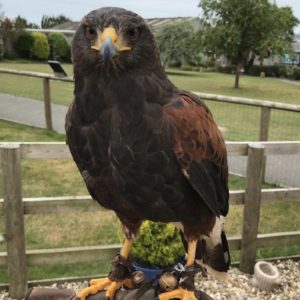
Stay safe and well, and happy reading…
